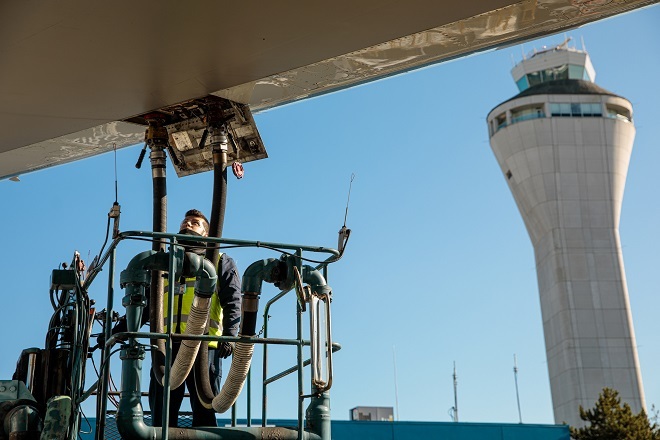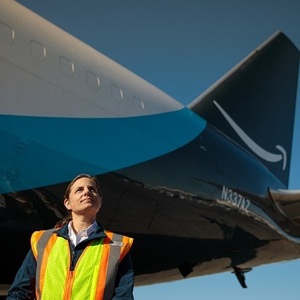Amazon Air secures SAF from Shell Aviation made by World Energy



Photo: Jordan Stead
July 8, 2020
BY Ron Kotrba
Amazon Air, the cargo airline of e-commerce giant Amazon, has secured up to 6 million gallons of sustainable aviation fuel (SAF) supplied by Shell Aviation and produced by World Energy out of its Paramount, California, biorefinery.
The SAF will be added to the existing fuel supply at select airports where Amazon operates, to be used by its partners and other carriers. The SAF secured by Amazon Air is made from waste fats and oils. Blended with traditional jet fuel, the SAF can reduce carbon emissions by up to 20 percent.
Not only will Amazon Air’s investment in SAF help reduce carbon emissions from its operations, helping it honor the Climate Pledge Fund—a commitment to be net-zero carbon by 2040 started with $2 billion in funding from Amazon—but it will also build confidence in the sustainable fuel industry.
Advertisement
“Development of more efficient air cargo solutions is critical to achieving our goal of net-zero carbon across Amazon by 2040,” said Sarah Rhoads, vice president of Amazon Global Air. “We’re already reducing carbon across our air network, from our ground operations—where we were the first to use electric main deck loaders in North America—to our fleet and network design. Using sustainable aviation fuel is a natural next step, and one that calls for continued action. We encourage other companies to join us in the effort to engage with suppliers to create more fuel alternatives.”
Earlier this year, Amazon trialed SAF on two flights from Washington to Arizona and Connecticut. Amazon has also committed to 100 percent renewable energy by 2025.
Advertisement
Related Stories
CountryMark on July 22 celebrated the completion of more than $100 million in upgrades at its refinery in Indiana, including those related to soybean oil storage. The facility produces renewable diesel via coprocessing technology.
ATOBA Energy and Air Moana are partnering to implement scalable solutions for the supply of SAF. The collaboration aims to ensure long-term SAF availability while supporting local initiatives to develop sustainable fuel production in Tahiti.
Neste Corp. on July 24 released second quarter results, reporting record quarterly renewable product sales volumes despite weaker margins. SAF sales were up nearly 80% when compared to the first quarter of 2025.
Valero Energy Corp. on July 24 released second quarter results, reporting a profitable three-month period for its ethanol segment. The renewable diesel segment posted a loss, but the company’s new sustainable aviation fuel (SAF) unit operated well.
The IRS on July 21 published a notice announcing the 2025 calendar-year inflation adjustment factor for the Section 45Z clen fuel production credit. The resulting adjustment boosts maximum the value of the credit by approximately 6%.
Upcoming Events










